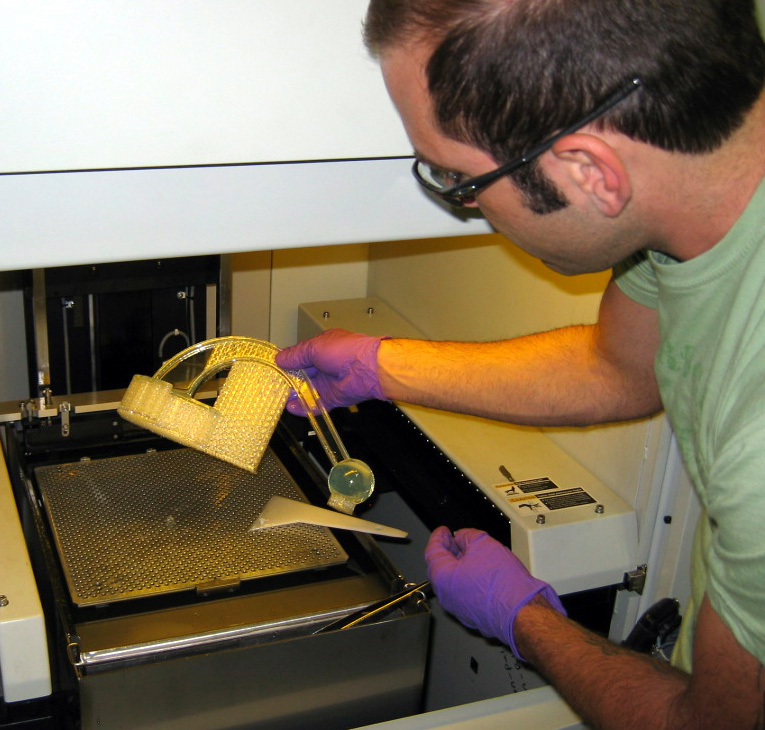
ALBUQUERQUE, N.M. —Sandia assisted 293 small businesses in 2006 with projects ranging from a kid’s car organizer to a radio frequency signal that can alert 85 percent to 90 percent of drivers that a first responder is approaching.
This was Sandia’s sixth year of helping small businesses through the New Mexico Small Business Assistance Program, thanks to a tax credit passed by the New Mexico Legislature.
Sandia is a National Nuclear Security Administration laboratory.
The program allows Sandia to apply a portion of the gross receipts taxes it pays each year to provide technical advice and assistance to New Mexico small businesses. During 2006, Sandia received nearly $1.8 million in tax credits.
There are few requirements for small-business participation — mainly that assisted companies must be for-profit New Mexico small businesses, and that the help is otherwise not available for a reasonable cost through private sources.
Eight success stories from the 2005 NMSBA program year were highlighted at a recent event in Santa Fe. Detailed summaries are available on request.
Baby Azul markets the only car organizer that is reachable and usable by children strapped in child safety seats. The organizer can be placed on a bench seat or between bucket seats and allows children access to their cups, books, or toys. An extra storage compartment in the console can be used for items that parents want to keep out of reach of their children. Bart Chavez served as Sandia principal investigator.
Force 4 Enterprises in Albuquerque has created an alert system that first responders — police, fire fighters, ambulance companies — can use to alert motorists of their approach when navigating through traffic during an emergency. The system will alert motorists by sending a message or tone that can be heard on the existing sound system of any motor vehicle if the operator is listening to any public broadcast radio station. Richard Sparks, now retired, served as Sandia principal investigator.
LaLuz Technologies, Inc., formerly Entereza Network Solutions in Albuquerque. In January 2006, the company was introduced to a new technology, a laser wind velocimeter that has the capability to look at, and define, clear air turbulence. This technology will be used to measure events such as clear air turbulence, microbursts, wake vortexes, and wind shear at airports and heliports. Michael Murphy served as Sandia principal investigator.
Los Alamos Renewable Energy, LLC (LARE) in Pojoaque, N.M., is a pioneer in the solar production of fuels through CO2 splitting (dissociation) with associated electricity production from the high-temperature dissociation process. LARE has been refining its process called SOLAREC (SOLAr REduction of Carbon). LARE’s prototype is currently successful at splitting CO2 at a commercially viable level. Rich Diver served as Sandia principal investigator.
The Visualization Sandbox group in Santa Fe and Albuquerque combines multiple domains of subject matter expertise ranging from simulation, visualization, and modeling to applied complexity, business management, and new product development. The goal of company’s Sandia-aided project is to develop tools and capabilities that will enable decision makers to reduce risk and increase time to market for highly complex business and environmental situations. Carl Diegert served as Sandia principal investigator.
Altela, Inc., in Albuquerque provides products and services to customers who need to recover pure water from highly salinated and contaminated water sources. Through the use of its proprietary, patented AltelaRain™ technology, Altela desalinates and decontaminates highly challenged water sources without the energy-intensive equipment, high temperatures, or high pressures of other water desalination technologies, such as reverse osmosis. John Torczynski served as Sandia principal investigator.
Fabtec Solutions, LLC, in Farmington, N.M., is one of the leading oil, gas, and mining equipment developers/fabricators in the Four Corners area. Multiple shock tests at the Mechanical Shock Test Facility at Sandia were conducted to evaluate the response and reliability of Fabtec’s electronic image producer device. Luis Abeyta served as Sandia principal investigator.
Satyrne Biotechnologies is a newly formed company that develops implants and surgical guidance software for traumatic skull fractures. Satyrne’s products significantly reduce surgery time and patient complications, potentially saving U.S. hospitals, insurance companies, and patients millions. Anderson Schools of Management – Management of Technology program served as principal investigator.
